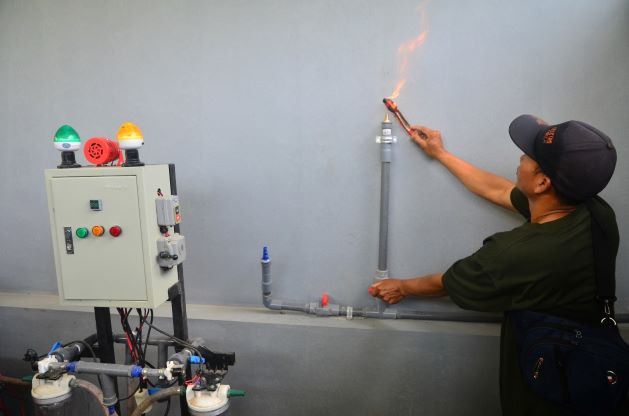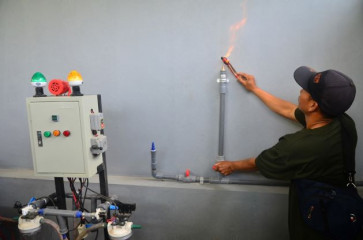Popular Reads
Top Results
Can't find what you're looking for?
View all search resultsPopular Reads
Top Results
Can't find what you're looking for?
View all search resultsPhase out fossil fuel-fired electricity, embrace biomass energy
Biomass power generation is relatively more expensive than coal, but is actually quite competitive if compared with diesel fuel.
Change text size
Gift Premium Articles
to Anyone
T
he Russia-Ukraine war has caused the price of oil and other energy sources such as gas and coal to skyrocket and consequently increase the cost of electricity, notably in remote islands and isolated areas in Indonesia, which still depend mainly on diesel-generated power.
On the other hand, Indonesia currently holds the presidency of the Group of 20 this year pursuing the theme "recover together, recover stronger". One of the group’s focus programs is mitigating climate change through the development of renewable energy.
The transition into renewable energy targets three priorities; access, technology and funding. In Indonesia, there are many potential sources of renewable energy such as solar, wind, water, geothermal and biomass and the government has pledged to accelerate the phasing out of fossil fuels like coal and oil.
As a tropical country with year-round heat and high rainfall, Indonesia has great potential for energy-producing biomass both from forest and agricultural plantations. Unsurprisingly, Indonesia is often dubbed the Saudi Arabia of bioenergy because biomass plants grow very easily in this archipelago.
According to the Energy and Mineral Resources Ministry, Indonesia has a biomass potential of 50 gigawatts (GW). Meanwhile, the utilization of biomass energy, especially for electricity supply only amounts to 50 megawatts (MW). Therefore, efforts are needed to accelerate its utilization in line with the government's program to exit fossil fuels. Abundant biomass energy sources include rice, sugar cane, oil palm, wood and bamboo. All types of vegetation are utilizable as fuel in biomass power plants.
Several types of large-scale crops such as oil palm, rice and sugar cane can be integrated with the processing industry. Some plants can also be developed into energy plantations such as wood and bamboo where these plants are devoted to supply fuel to biomass power plants. Interestingly, biomass energy has an advantage because it is locally sourced.
Various technologies are applicable to generating electricity from biomass, nevertheless, thermal technology is the most feasible one to use considering its several advantages. There are three main schemes in thermal technology; combustion, gasification and pyrolysis. Some schemes combine the three technologies.



















